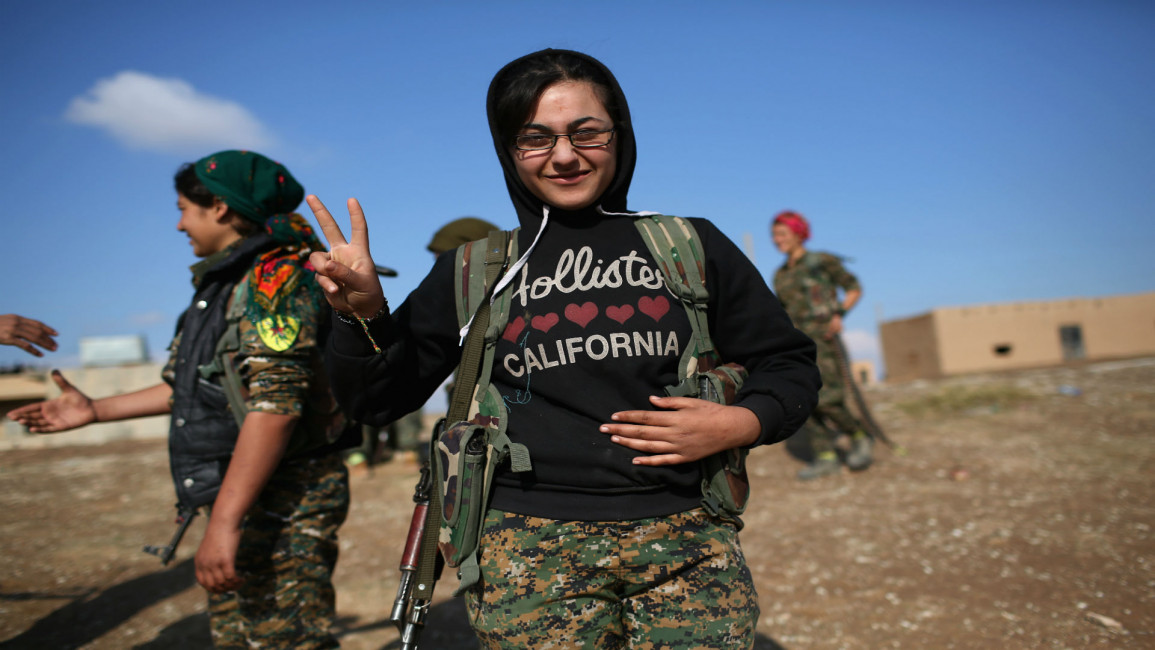
The liberation of al-Shaddadi in Syria triggers Mosul offensive
While a shaky truce brokered by the United States and Russia remains in place in much of Syria, there has been no let up in bombing raids on Daesh forces in the eastern part of the country.
The raids continue in the wake of the liberation of the small but hugely strategic town of al-Shaddadi.
The town, which had a pre-war population of 15000, sits on the western bank of a tributary to the River Tigris in the eastern Syrian province of Hasakah.
It was freed on 22 February after a six day offensive that involved combined Kurdish and Syrian rebel troops fighting under the banner of the Syrian Democratic Forces (SDF).
Its seizure broke a key transportation link between Mosul and the jihadists' putative capital of Raqqa in Syria.
At a Pentagon press conference on 29 February, US Secretary of Defense Ash Carter called al-Shaddadi "a critical node for ISIL training and logistics, as well as for its oil enterprise." ISIL is an acronym favoured by the US to describe the jihadists.
Officials went on to say that with al-Shaddadi secured the long anticipated Mosul offensive had finally begun.
Mosul, Iraq's second largest city, has been in the hands of Daesh for nearly two years.
 |
The success of the SDF offensive has put a significant dent in the Daesh myth of battlefield invincibility and has secured for America and its Syrian and Kurdish allies an enormous propaganda victory. |  |
In the words of US Joint Chiefs Chairman Gen. Joseph Dunford "The operations against Mosul have already started, we're isolating Mosul, even as we speak."
The battle for al-Shaddadi was part of a larger offensive that began in mid October of last year and has seen hundreds of towns and villages and more than a thousand square kilometres of land liberated.
The SDF operation combines elements of Syrian Kurdish YPG militias with roughly 5000 Syrian Arabs.
The Americans have been carefully nurturing this Kurdish-Arab alliance, using dozens of US special forces soldiers as advisors, cautiously doling out weapons and ammunition and calling in airstrikes as the fighters moved steadily south to al-Shaddadi.
The success of the SDF offensive has put a significant dent in the Daesh myth of battlefield invincibility and has secured for America and its Syrian and Kurdish allies an enormous propaganda victory.
The mantra of the self-styled caliph Abu Bakr al-Baghdadi to "remain and expand" has been put to the sword in no uncertain terms.
The battlefield victories thus far are, as well, a vindication for US President Barack Obama.
His critics have frequently heaped derision on what they say is his hesitant, inadequate response to the Syrian civil war.
But it was the president who ordered the military advisors in and now the hard evidence is accumulating that, coupled with the air war, his strategy is working.
Despite Daesh's claims that it would fight ferociously to hold al-Shaddadi, liberating forces were reported as saying that the town was secured surprisingly easily.
Daesh was pummelled from the air by US fighter jets and hit hard on the ground by the SDF and what the Americans say were cyber attacks designed to disrupt and confuse the jihadist battlefield commanders.
 |
With al-Shaddadi liberated, the Mosul offensive underway and Raqqa threatened, Daesh's vulnerability has been exposed as never before. |  |
At least two counter attacks by Daesh failed and by 23 February the SDF had successfully pushed south of the town and recaptured the important Jabisah oil field.
The Americans have been careful to give few details of their cyber attacks beyond what the defense secretary called manoeuvres intended to "interrupt [and] disrupt ISIL's command and control, to cause them to lose confidence in their networks, to overload their network so that they can't function, and do all of these things that will interrupt their ability to command and control forces there (and) control the population and the economy."
Equally carefully they have given few details of the number of Americans on the ground advising the SDF but estimates have ranged from a few dozen to hundreds of US special forces soldiers.
The general said that what he called "multinational forces" had begun to encircle and isolate Daesh fighters with "cyber, air and ground attacks."
As the Mosul offensive heats up the number can be expected to rise with some experts anticipating several thousand US troops will be required on the ground to finish off the jihadists.
Meanwhile the US intends to keep up the heat on Raqqa. The city is experiencing daily coalition airstrikes.
And pressured to the north by Kurdish forces and to the south by Assad's troops, assisted by Russian air attacks, Raqqa is now close to being encircled.
Bill Law is a former BBC Gulf analyst. Follow him on Twitter:@Billlaw49
Opinions expressed in this article remain those of the author and do not necessarily represent those of al-Araby al-Jadeed, its editorial board or staff.




